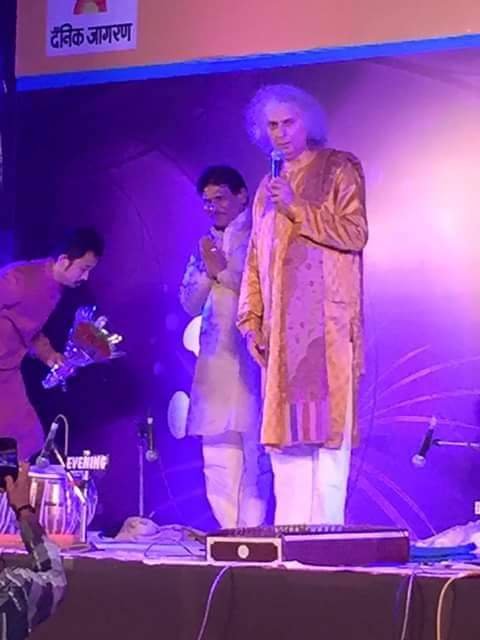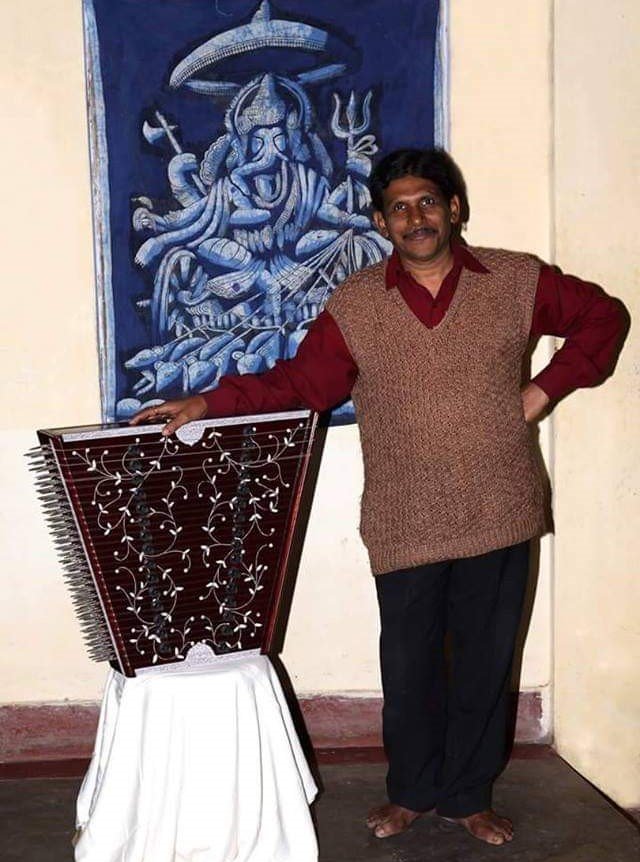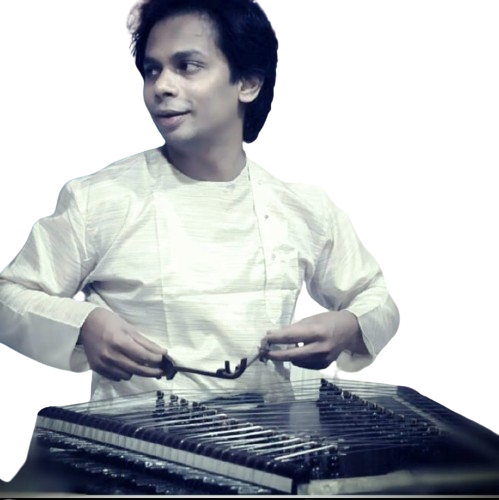
Know About
Devi Prasad Sonkar
Pandit Devi Prasad Sonkar, born on 20 July 1957 in the historic city Varanasi, has made a significant mark in the world of Indian classical music, not only as a skilled Santoor player but more so as a revered Santoor manufacturer. Growing up in the Bengali Tola locality, Pandit Devi Prasad did not come from a family with a musical background. Despite this, his passion for music led him to pursue formal education under the guidance of Pandit Dwitiya Kishore Acharya, an accomplished sitar player. His dedication and talent eventually brought him under the tutelage of the legendary Santoor maestro, Awarded two of the country's top civilian honours: The Padma Shri (1991) and The Padma Vibhushan (2001) Pandit Shivkumar Sharma , who recognized his keen interest in both playing and crafting the Santoor.
Pandit Devi Prasad's exceptional skills as a Santoor manufacturer have been recognized with various awards and accolades. His instruments are cherished not only in India but also in many other countries, enhancing the global appreciation of Indian classical music. The Santoor and Swara Mandal created by him are used by numerous artists from India and abroad, including Pandit Shivkumar Sharma, Pandit Bhajan Sopori, Pandit Rahul Sharma, Pandit Abhay Rustam Sopori, and Pandit Channu Lal Mishra etc. are the main ones.


40+
Year of Experience

300+
Santoor Manufactured

300+
Santoor Sold
Words From
Dr. Bhaskar Sonkar
Dr. Bhaskar Sonkar, also known as Naveen Bhaskar, is the proud son of Pandit Devi Prasad Sonkar, and the torchbearer of the esteemed Santoor tradition. Born into a family deeply rooted in the cultural heritage of Varanasi, Bhaskar was immersed in the world of music from a young age. His early education in music was under the careful guidance of his father, who instilled in him a profound understanding and love for the Santoor.
Embark on an extraordinary journey of Santoor learning under the esteemed guidance of Padma Shri Pandit Satish Vyas, a senior disciple of the legendary Pandit Shivkumar Sharma. With a legacy rooted in dedication and mastery, Pandit Satish Vyas brings a wealth of knowledge and an unparalleled depth of musical insight.
Bhaskar pursued his higher education at the prestigious Banaras Hindu University (BHU), where he obtained his PhD in Music. His research, titled "An Analytical Study on the Contributions of Various Artists in the Development of Santoor and Its Playing Style in North Indian Classical Music"" reflects his deep commitment to and understanding of the Santoor and its evolution in Indian classical music.
Apart from playing Santoor, Bhaskar holds:
- Bachelor of Music and Master of Music in Instrumental Percussion.
- Bhaskar has also received Young Artist Scholarship from the Ministry of Culture in 2013.
- NET/JRF 2016.
- He has also given Santoor performances in Varanasi and other places.
- He had performed at Bali Spirit Festival Indonesia 2016.
- Ram Lalla Utsav 2024 New Zealand, Fiji.
- G20 2023 in India
